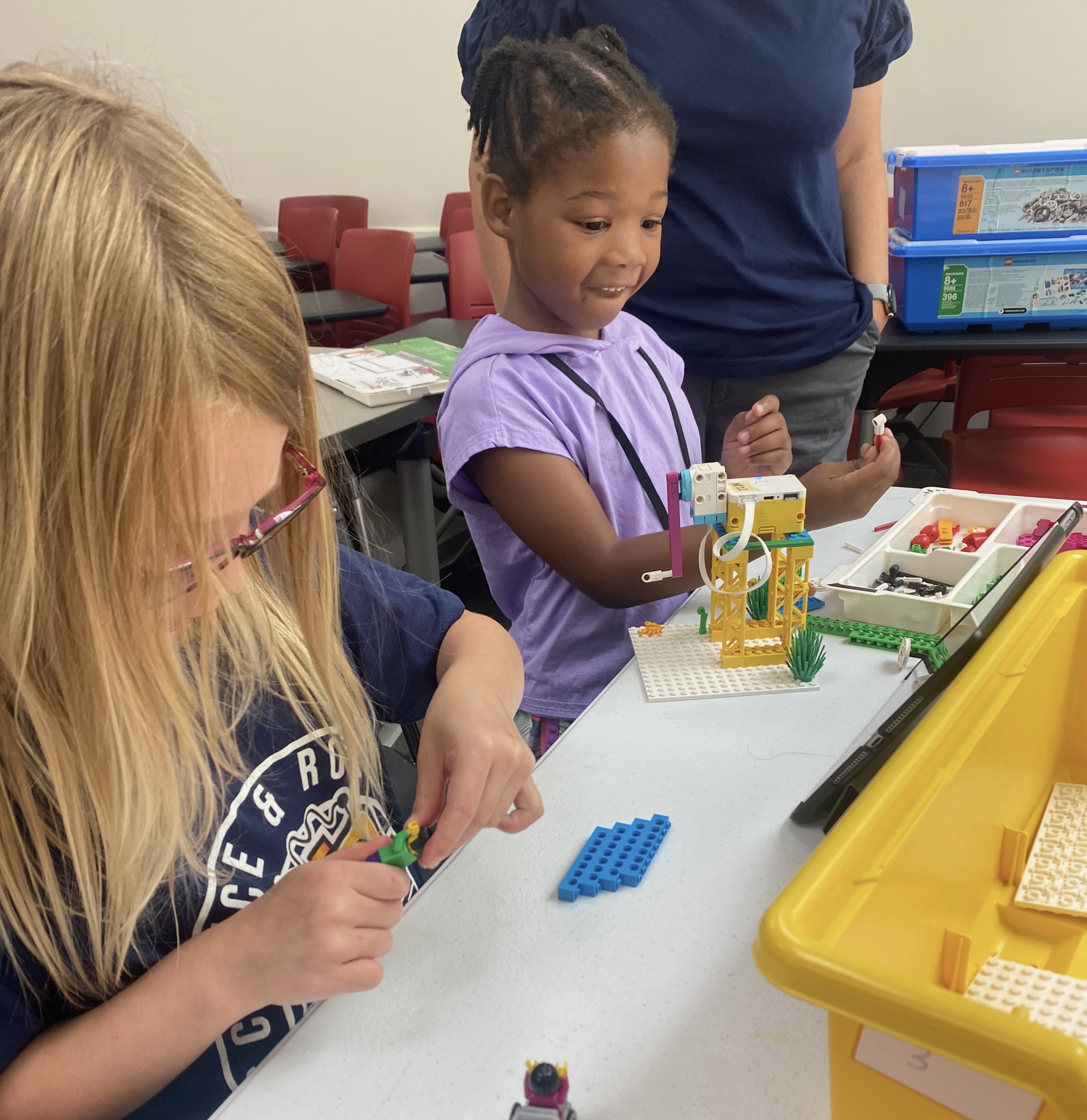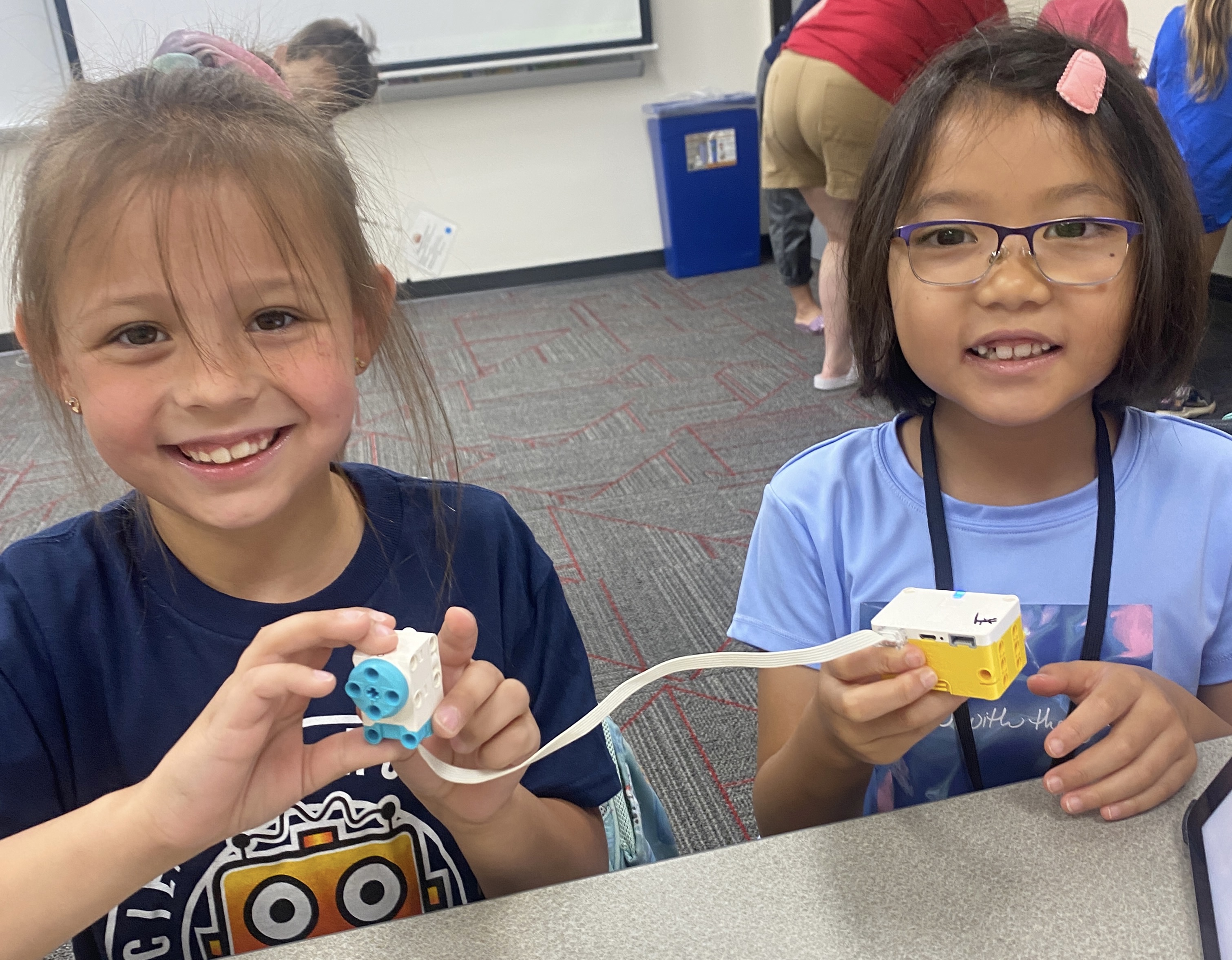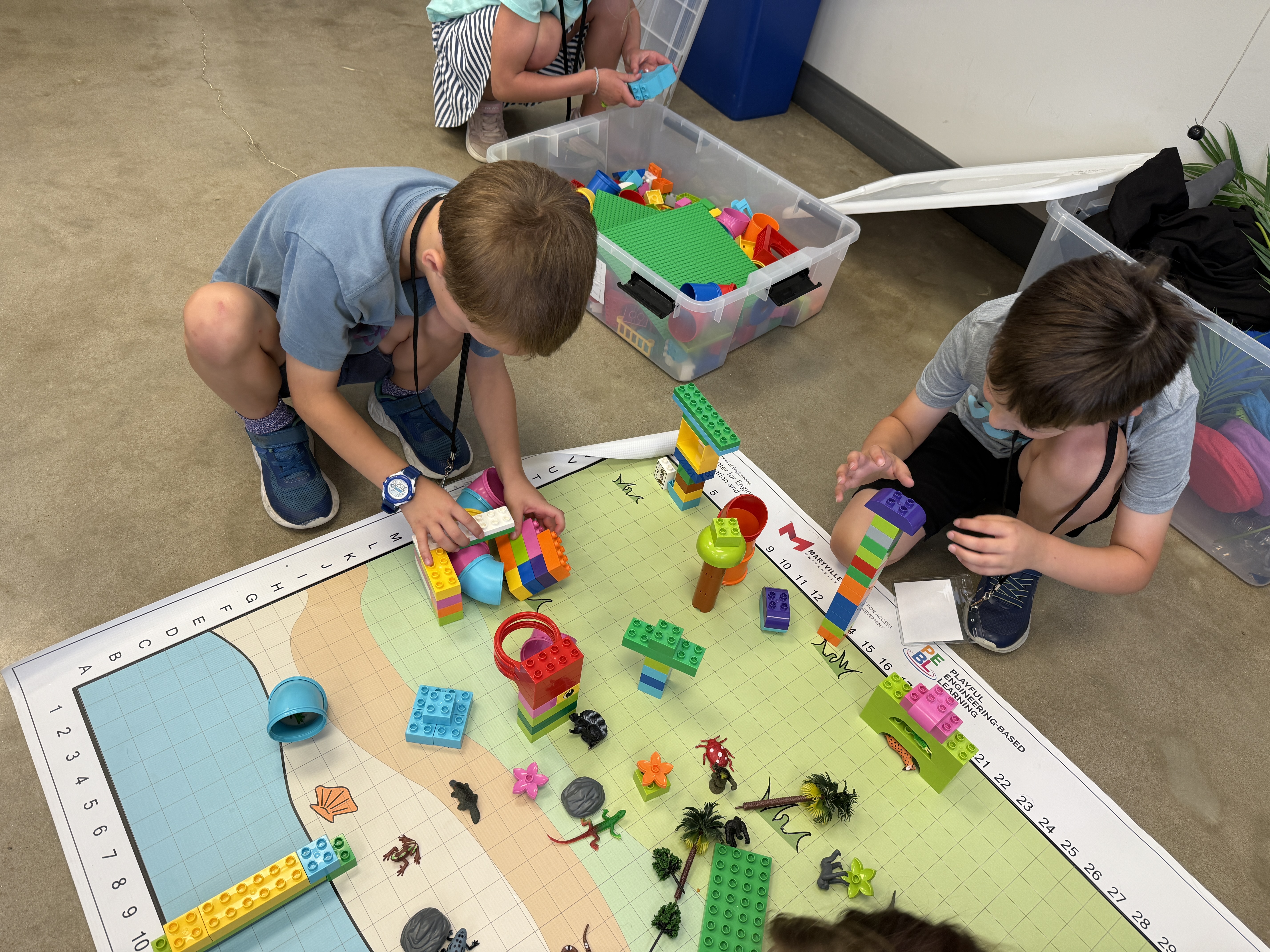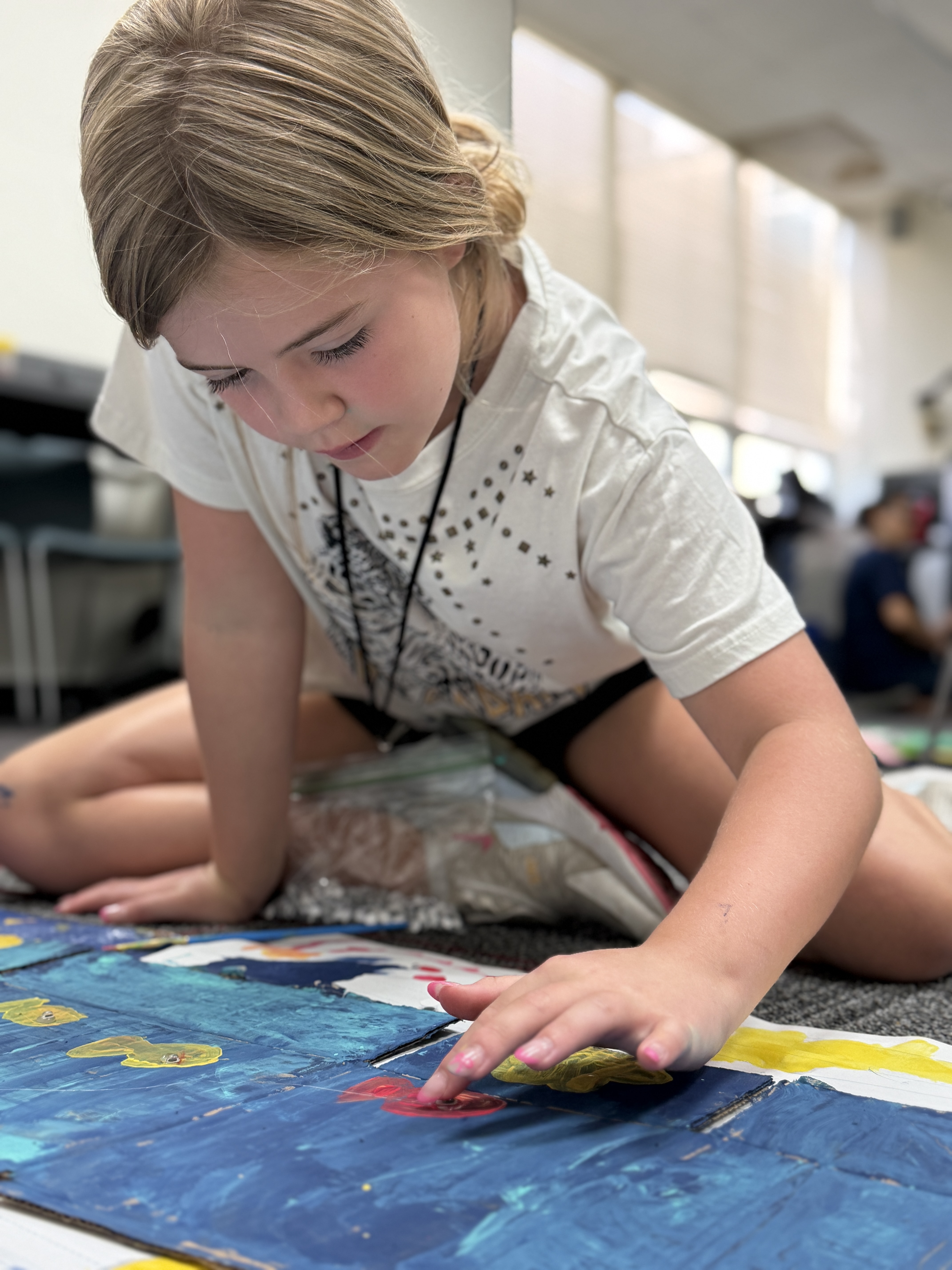 Summer is known for a host of cherished traditions: float trips and fireworks, camping and cookouts. Here at Maryville, one of our favorite summer traditions is welcoming hundreds of elementary, middle school, and high school students to campus through our impactful summer STEM programs.
Summer is known for a host of cherished traditions: float trips and fireworks, camping and cookouts. Here at Maryville, one of our favorite summer traditions is welcoming hundreds of elementary, middle school, and high school students to campus through our impactful summer STEM programs.
Hosted by our Center for Access and Achievement (CA2), Maryville’s Elementary Summer Science and Robotics, Middle School Teen Tech, and High School Coding Camp programs offer students more than 100 courses, all taught by highly qualified faculty including professionals in STEM, Maryville professors, and top area educators.
The programs are a prime example of the university’s commitment to active, experiential learning and being a force for good in the community. Students from throughout the St. Louis area, including some of the region’s most underserved schools, gain access to hands-on STEM-based learning experiences. Educators, including those enrolled in Maryville’s STEM Education Certificate program, get the chance to explore and develop more impactful ways to engage students in these subjects. And classrooms nationwide benefit from the cutting-edge research we conduct in collaboration with partners like Tufts University, the LEGO Foundation, and the National Science Foundation.
Joyful Play-Based Learning
 Drop by one of our classrooms during the middle two weeks of July, and you’ll find preschoolers attending “pre-med preschool,” kindergartners building motorized LEGO submarines, elementary students solving mysteries in the Maryville Crime Lab, middle school engineers discovering the exciting world of drones, and high schoolers designing their own video games.
Drop by one of our classrooms during the middle two weeks of July, and you’ll find preschoolers attending “pre-med preschool,” kindergartners building motorized LEGO submarines, elementary students solving mysteries in the Maryville Crime Lab, middle school engineers discovering the exciting world of drones, and high schoolers designing their own video games.
The programs are an outgrowth of a study that CA2 executive director Steve Coxon, PhD conducted as part of his dissertation more than a decade ago, showing that students could make gains in spatial ability – the ability to manipulate complex mental images – by participating in a simulation of FIRST LEGO League.
“I thought I would be laughed out of the room pitching LEGO robotics as a dissertation topic,” Coxon said. “But the reality is that students don’t get a lot of opportunities to practice their spatial abilities in school, and so they generally haven’t been able to reach their potential. Our study demonstrated that these skills are improveable – especially when students are given creative, play-based learning opportunities like those we offer as part of CA2.”
Research that Lights the Way
The impact of these programs reaches far beyond campus, through the learning tools we develop and the research we conduct that helps drive the entire field of STEM learning forward.
For example, thanks to a partnership with Tufts University’s Center for Engineering Education Outreach (CEEO) and a grant from the LEGO Foundation, Maryville educators developed Map Mats, an innovative tool that promotes joyful, play-based learning with LEGO DUPLO sets. This transformative tool, which is available for any teacher to use in their classroom, is the subject of a new study demonstrating that play-based activities can be an easy and effective way to support early STEM learning.
Maryville is also working with Tufts on a research project funded by the National Science Foundation to develop better tools to introduce children to AI and machine learning concepts. Tufts researchers developed a tool called the Smart Motor, and the CA2 has developed curricula and conducted evaluations of students learning to train the Smart Motors through sensors to introduce them to supervised machine learning in a low-cost way. Over the past four years, Maryville students and teachers got the chance to be involved in the testing and implementation of the technology.
“One teacher had inherited a whole bunch of these robotic mice, so our students used the smart motors to make better mouse traps,” said Coxon.
 Changing Lives
Changing Lives
Most important of all are the lessons these students learn about themselves, and the self-confidence and curiosity they gain from being exposed to new experiences and challenges that will support their problem-solving abilities throughout their lives.
Nicole Binion, a teacher in the University City University School District, has seen the impact of the CA2 programming first-hand. She shared an example of a typically shy elementary student who became deeply engrossed in a digestive system activity using fruits, Nutella, marshmallows, and LEGOs. The student was so engaged that they even devised a better method using Makey Makey (a computer input device) to create music for digestion sounds, which brought them and their mother immense joy.
“It was so amazing and profound to see the joy on this little boy’s face,” said Binion. “His mother said she knew he had it in him, but to see him in this type of program in this type of environment brought so much joy to her.”
With technology constantly evolving, Dr. Coxon says he looks forward to the CA2 continuing to thrive – and bringing even more innovative and engaging learning opportunities to students and educators.
Applications for the STEM Education Certificate program are open for the live-virtual Spring session now and the in-person summer session registration will open in the spring. Registration for the Winter Science and Robotics Program is now open for February classes. Summer Science and Robotics registration opens in January for the July program. Limited scholarships are available for all programs.

About Maryville University
Founded in 1872, Maryville University is a comprehensive and nationally ranked private institution with an enrollment of well over 9,000 students. Maryville offers over 90 degrees at the undergraduate, master’s and doctoral levels, as well as several certificates that align with the undergraduate and graduate education levels. Maryville is recognized as the third fastest-growing private university in the United States by The Chronicle of Higher Education, serving students from 50 states and 56 countries. More than 50,000 Maryville alumni globally, many of whom work and live in the St. Louis region.